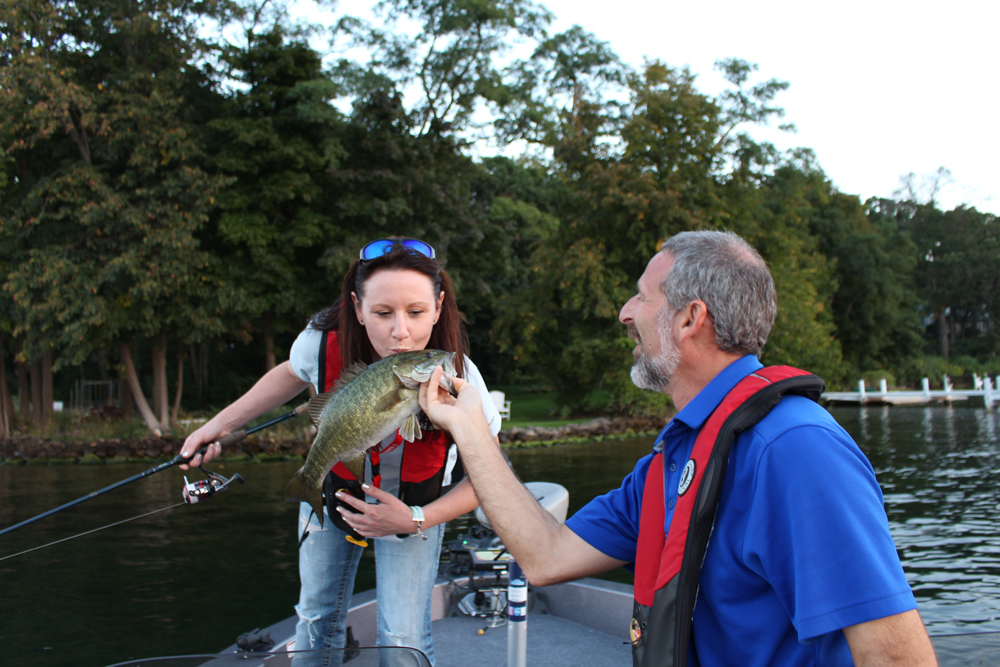Smallmouth bass are awesome fighters, and can make a day on sweet-water thoroughly exciting. You’ll fin this species in both rivers and reservoirs, but those lake-bound smallmouth bass are most often caught by largemouth anglers who luck into them; it’s hard to target smallmouth in lakes, in specific. You can upgrade your chances of hooking one, however, if you use the following tactics:

- Fish in areas with rocky bottom. Not gravel, but big chunks of rock and/or rip-rap. This is the smallmouth’s favored territory, and you’ll often encounter them prowling around boulders and rock-slides.
- Hit points. Steep drop-offs are another thing smallmouth like, and often you’ll find them hunting along the top of a point with sharp drops off to either side.
- Fish deep. Yes, you will catch smallmouth up shallow, especially at dawn and dusk. But the bulk of your day-time fish will often be caught right on bottom in relatively deep water, particularly during summer.
- Fish live large or jumbo shiners. You can catch smallies on lures with no problem (try a four-inch brown or root-beer tube jig, lipped divers, and crawfish pattern crankbaits) but when push comes to shove it’s tough to beat a live and kicking minnow. It need to be big, though, and jumbos are best. Try lip- or back-hooking them on thin circle hooks (since most of us will be releasing the smallmouth we catch) and give the fish a solid five-count before applying any tension. If you've never attempted this type of fishing before, take a moment to watch How to Catch a Bass, Simple and Easy. Between the video and the article it's published with, you should have no trouble at all picking up on the technique.
BONUS TIP: If you're hitting a lake that also has a strong largemouth bass population, like Deep Creek Lake in western Maryland or Smith Mountain Lake in Virginia, it can be hard to target the smallmouth in specific simply because a largemouth will often beat the smallmouth to the punch. In this case, try targeting the smallies very early and very late in the season. Smallmouth tend to be significantly more active than largemouth when the temperature drops, and fishing when the largemouth have grown a bit lethargic should help you cull the catch a bit.